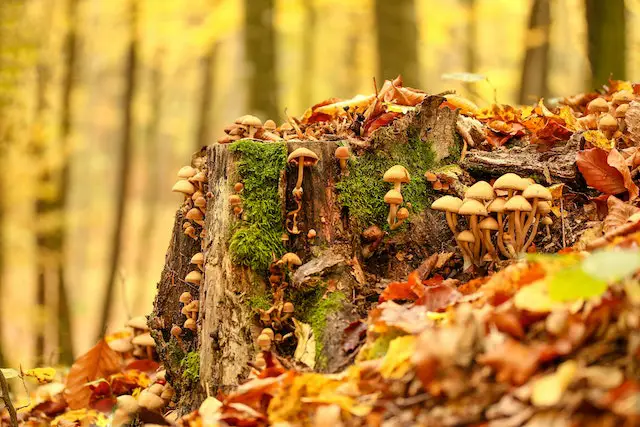Fungi are a diverse group of organisms that play vital roles in various ecosystems. Often overlooked, they are essential for the functioning of our planet’s biosphere. Fungi come in many forms, from the familiar mushroom to the microscopic mycelium, and they can be found in almost every habitat on Earth.

In this article, we will explore some of the benefits of fungi and how they impact our lives.
Benefits of Fungi
Fungi and Food
Fungi play a significant role in the food we eat. Some of the most well-known fungi are the mushrooms that we see in the grocery store or at the farmer’s market. Mushrooms are not only tasty but also a great source of nutrition. They are low in calories and high in protein, fiber, and essential vitamins and minerals.
In addition to mushrooms, fungi are used in the production of other foods such as cheese, bread, and beer. The blue mold that is commonly found on cheese, for example, is a type of fungus that gives cheese its distinct flavor. Fungi are also responsible for the fermentation process that is used to make beer and bread. Without fungi, we wouldn’t have some of the foods and beverages that we enjoy today.
Fungi and Medicine
Fungi are a treasure trove of medicinal compounds. Many of the drugs that we use today were discovered from fungi. For example, the antibiotic penicillin was first discovered from a type of mold called Penicillium. Other drugs such as cyclosporine, which is used to prevent rejection in organ transplants, and lovastatin, which is used to lower cholesterol, were also discovered from fungi.
Benefits of fungi are also found in traditional medicine. For thousands of years, people have used fungi to treat various ailments. For example, the reishi mushroom has been used in traditional Chinese medicine to boost the immune system and fight cancer.
Today, researchers are still exploring the potential benefits of fungi for medicinal purposes, and many promising discoveries have been made.
Fungi and the Environment
Fungi play an essential role in maintaining the health of our planet’s ecosystems. They are decomposers, which means that they break down dead plant and animal matter, returning nutrients to the soil.
Without fungi, dead organic matter would accumulate, and nutrients would be locked up, preventing the growth of new plants. Fungi are also important in the carbon cycle, helping to store and release carbon in the soil.
In addition to their role in decomposition, fungi also form symbiotic relationships with plants. Mycorrhizal fungi, for example, form mutualistic relationships with the roots of plants, helping them to absorb nutrients from the soil.
In return, the plants provide the fungi with sugars that they need for energy. These symbiotic relationships are essential for the health of many ecosystems, particularly in nutrient-poor soils.
Fungi and Industry
Fungi have a wide range of industrial applications. One of the most well-known is in the production of enzymes. Enzymes are proteins that catalyze chemical reactions, and they are used in many industrial processes, such as the production of paper, textiles, and food.
Fungi are a rich source of enzymes, and many industries rely on them for their production. They are also being used in bioremediation, the process of using living organisms to clean up polluted environments. Fungi can break down a wide range of pollutants, including oil, pesticides, and heavy metals.
Researchers are exploring the use of fungi in cleaning up polluted sites, such as abandoned mines and oil spills.
Fungi and Culture
Fungi have played a significant role in human culture for thousands of years. They have been used in religious ceremonies, as medicine, and as a source of food.
Fungi have also inspired many works of art, such as paintings and sculptures. In modern times, fungi have become a subject of interest for many hobbyists and enthusiasts.
Mushroom hunting, for example, is a popular activity that involves searching for and identifying different types of mushrooms in the wild. There are also many clubs and societies dedicated to the study and appreciation of fungi.
Benefits of fungi – Conclusion
Fungi are a fascinating and diverse group of organisms that play essential roles in our lives and the environment. From the food we eat to the medicines we take, fungi have contributed in countless ways to human civilization. They are also vital for maintaining the health of our planet’s ecosystems, and many industries rely on them for their products and services. As we continue to explore the potential of fungi, it is clear that they will continue to play an important role in our lives and the world around us.
informative
Amazing